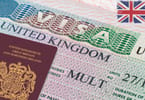NEW YORK, NY – After being pushed out of the number one spot last year by Germany, the United States has taken back its position at the top of the Anholt-GfK Nation Brands IndexSM (NBISM).
The United Kingdom remains in 3rd place, with France in 4th. Further down the ranking, Ukraine and Russia achieved large reputation gains, while Greece stands alone in suffering a steep drop.
The study measures global perceptions of 50 developed and developing countries – and is unmatched in the level of detail on which the nation ranking is judged. The study asks questions about 23 different national attributes, which are then combined into six overall “dimensions” on which the national image is based. Those dimensions are Exports, Governance, Culture, People, Tourism and Immigration/Investment.
Anholt-GfK Nation Brands IndexSM
Overall Brand Ranking 2015 (Top 10 of 50 Nations)
2015 rank 2014 rank
1 United States 2
2 Germany 1
3 United Kingdom 3
4 France 4
5 Canada 5
6 Japan 6
7 Italy 7
8 Switzerland 8
9 Australia 9
10 Sweden 10
Professor Simon Anholt, the independent policy advisor who created the Nation Brands Index in 2005, comments, “This year’s results stand as a reminder that although the images of countries are incredibly stable, changes can and do take place, particularly when people around the world sense that countries are contributing noticeably more or less to humanity and the planet. It’s their perceived impact on the world that affects countries’ reputation far more than their assets or achievements. Despite its continued perceived leadership in Europe, Germany has fallen back to second place, largely as a result of losing the gains it made last year. On top of that, Germany also lost ground on ‘governance’ (which incorporates both international and domestic behaviors) following its high-profile stance on European challenges such as immigration and struggling Eurozone economies. In particular, Russia’s perceptions of Germany’s governance dropped significantly, following Germany’s support of anti-Russian sanctions.”
The rest of the top ten ranking remains in the same order as last year, but with certain nations continuing to close in on the ones ahead. UK, steady in 3rd place, moved closer to the top nations and is followed by France in 4th place and Canada in 5th. Japan and Italy hold 6th and 7th places, respectively.
Greece, a nation facing chronic economic issues, has struggled to maintain its image, with notable falls across all indices. This means that it has slipped one place, to 21st position, in the overall ranking, with Brazil moving up to 20th.
Looking outside the top 20 nations, both Russia and Ukraine have seen impressive gains on all six indices that make up the overall NBISM ranking. Russia has risen from 25th last year to 22nd this year, overtaking China, along with Singapore and Argentina, while Ukraine has moved from 48th to 46th, overtaking Kenya and Qatar.
Vadim Volos, Senior Vice President and Director of NBISM at GfK, comments, “A country’s global reputation can make a critical difference to the success of its business, trade and tourism efforts, as well as its diplomatic and cultural relations with other nations. Our clients depend on the NBISM study because it is unbeaten in the depth of information that is included in forming the ranking – making it the most thorough and robust monitor of national reputation available.”
WHAT TO TAKE AWAY FROM THIS ARTICLE:
- Professor Simon Anholt, the independent policy advisor who created the Nation Brands Index in 2005, comments, “This year's results stand as a reminder that although the images of countries are incredibly stable, changes can and do take place, particularly when people around the world sense that countries are contributing noticeably more or less to humanity and the planet.
- Our clients depend on the NBISM study because it is unbeaten in the depth of information that is included in forming the ranking – making it the most thorough and robust monitor of national reputation available.
- Vadim Volos, Senior Vice President and Director of NBISM at GfK, comments, “A country's global reputation can make a critical difference to the success of its business, trade and tourism efforts, as well as its diplomatic and cultural relations with other nations.






















